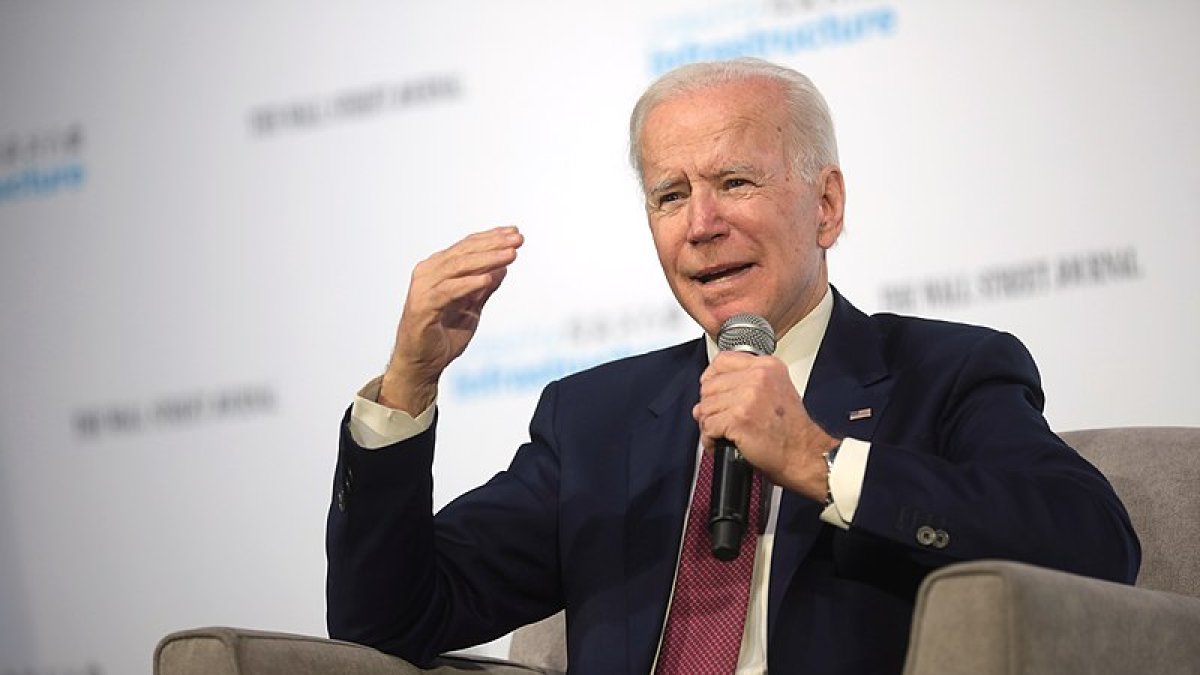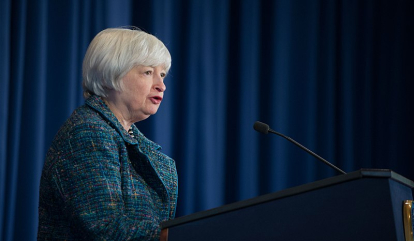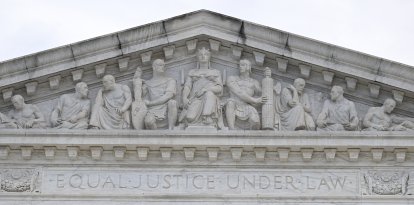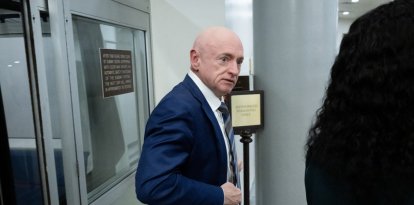Can Joe Biden invoke the 14th Amendment to raise the debt ceiling? Here's what you need to know
Janet Yellen, Secretary of the Treasury, expressed that this option would mean a "constitutional crisis", although academics have mixed views on the subject.

Joe Biden/Wikimedia Commons
Joe Biden continues his political impasse with Republicans over the debt ceiling. The June 1 deadline is looming ever closer, and yet the president seems to have less and less room to negotiate with Congress. This situation has led the White House to consider invoking the 14th Amendment to continue borrowing without the authorization of legislators.
The GOP has already passed its proposal in the House, and the Democratic Senate is not looking upon it favorably. However, Joe Manchin and Kyrsten Sinema called for bipartisanship and sitting down to negotiate compromise legislation.
The Limit, Save and Grow Act of 2023 was passed in mid-April by 217 Republicans in the lower House, with no Democrats joining the bill. This contemplates an increase in the ceiling for one year and then a reduction in public spending. Biden's position is clear: clean raise or nothing, delaying the matter.
The president recently participated in an interview with MSNBC. He was explicitly asked about the possibility of invoking the 14th Amendment, to which he responded, "I've not gotten there yet."
Two days later, Treasury Secretary Janet Yellen said that while such a situation would be anything but desirable, it is a real possibility. "There is no way to protect our financial system in our economy, other than Congress doing its job and raising the debt ceiling and enabling us to pay our bills and we should not get to the point where we need to consider whether the president can go on issuing debt. This would be a constitutional crisis," she said in an interview with ABC.
In turn, the official said she does not want to "consider emergency options" while warning that there will be an "economic and financial catastrophe that will be of our own making" if Congress does not act soon.

The United States has never defaulted on its debt in history, so the situation is of concern in DC. The president called a meeting for Tuesday, May 9, to be attended by the four Congressional leaders, Kevin McCarthy, Hakeem Jeffries, Mitch McConnell and Chuck Schumer.
Amendment 14 and the debt ceiling
As The New York Times reported, the Biden Administration is considering using the 14th Amendment to solve the debt ceiling problem. The legal mechanism for doing so lies in a legal interpretation of the Amendment mentioned above, which states that "The validity of the public debt of the United States, authorized by law, including debts incurred for payment of pensions and bounties for services in suppressing insurrection or rebellion, shall not be questioned."
With this in mind, proponents of the theory argue that it would be unconstitutional for the federal government to default on its debts.
When the debt ceiling was also an issue in 2011 under Barack Obama, former President Clinton confessed to National Memo that, if he had been president at that moment, he would have invoked the 14th Amendment "without hesitation and force the courts to stop me."
Academics are divided on the legal viability of this interpretation. Proponents of the theory assert that the language of the 14th Amendment makes it clear that any action must be taken to avoid a default, as failure to do otherwise would be unconstitutional. For example, Laurence Tribe, professor emeritus at Harvard Law School and constitutional law scholar, wrote in 2011 that "nothing in the 14th Amendment or in any other constitutional provision suggests that the president may usurp legislative power to prevent a violation of the Constitution."
Rebecca Zietlow, Professor of Constitutional Law at the University of Toledo, recently argued that "Section Four does impose a constitutional mandate that is directly relevant to today's debt ceiling crisis."
The difference between the two approaches centers on who has the authority to borrow money. Those on Tribe's side claim that the Constitution only gives Congress the power to take on debt, while those who reason like Zietlow point out that the White House must do whatever it takes to meet its financial obligations.

























